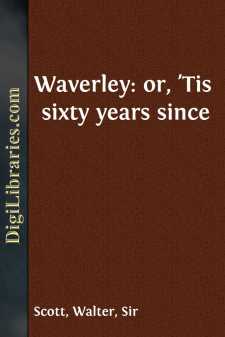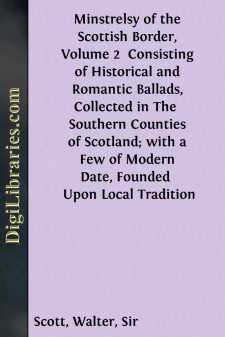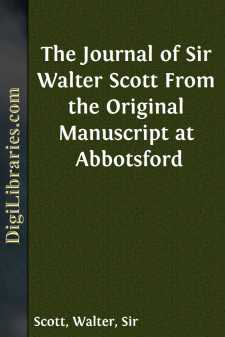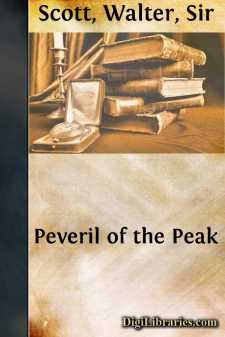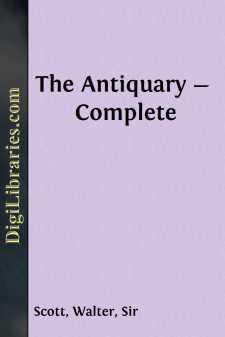Categories
- Antiques & Collectibles 13
- Architecture 36
- Art 48
- Bibles 22
- Biography & Autobiography 815
- Body, Mind & Spirit 144
- Business & Economics 28
- Children's Books 18
- Children's Fiction 14
- Computers 4
- Cooking 94
- Crafts & Hobbies 4
- Drama 346
- Education 58
- Family & Relationships 59
- Fiction 11835
- Games 19
- Gardening 17
- Health & Fitness 34
- History 1378
- House & Home 1
- Humor 147
- Juvenile Fiction 1873
- Juvenile Nonfiction 202
- Language Arts & Disciplines 89
- Law 16
- Literary Collections 686
- Literary Criticism 179
- Mathematics 13
- Medical 41
- Music 40
- Nature 180
- Non-Classifiable 1768
- Performing Arts 7
- Periodicals 1453
- Philosophy 65
- Photography 2
- Poetry 896
- Political Science 203
- Psychology 44
- Reference 154
- Religion 515
- Science 126
- Self-Help 85
- Social Science 83
- Sports & Recreation 34
- Study Aids 3
- Technology & Engineering 60
- Transportation 23
- Travel 463
- True Crime 29
Sort by:
by:
Walter Scott
CHAPTER FIRST. Isab.—Alas! what poor ability's in meTo do him good?Lucio.—Assay the power you have.Measure for Measure. When Mrs. Saddletree entered the apartment in which her guests had shrouded their misery, she found the window darkened. The feebleness which followed his long swoon had rendered it necessary to lay the old man in bed. The curtains were drawn around him, and Jeanie sate...
more...
by:
Walter Scott
CHAPTER FIRST. How have I sinn'd, that this afflictionShould light so heavy on me? I have no more sons,And this no more mine own.—My grand curseHang o'er his head that thus transformed thee!—Travel? I'll send my horse to travel next.Monsieur Thomas. You have requested me, my dear friend, to bestow some of that leisure, with which Providence has blessed the decline of my life, in...
more...
by:
Walter Scott
INTRODUCTION—(1829) The plan of this Edition leads me to insert in this place some account of the incidents on which the Novel of WAVERLEY is founded. They have been already given to the public, by my late lamented friend, William Erskine, Esq. (afterwards Lord Kinneder), when reviewing the 'Tales of My Landlord' for the QUARTERLY REVIEW, in 1817. The particulars were derived by the Critic...
more...
by:
Walter Scott
LESLY'S MARCH. "But, O my country! how shall memory trace"Thy glories, lost in either Charles's days,"When through thy fields destructive rapine spread,"Nor sparing infants' tears, nor hoary head!"In those dread days, the unprotected swain"Mourn'd, in the mountains, o'er his wasted plain;"Nor longer vocal, with the shepherd's lay,"Were...
more...
by:
Walter Scott
NOVEMBER. [Edinburgh,] November 20, 1825.—I have all my life regretted that I did not keep a regular Journal. I have myself lost recollection of much that was interesting, and I have deprived my family and the public of some curious information, by not carrying this resolution into effect. I have bethought me, on seeing lately some volumes of Byron's notes, that he probably had hit upon the...
more...
by:
Walter Scott
CHAPTER I When civil dudgeon first grew high,And men fell out, they knew not why;When foul words, jealousies, and fears,Set folk together by the ears——BUTLER. William, the Conqueror of England, was, or supposed himself to be, the father of a certain William Peveril, who attended him to the battle of Hastings, and there distinguished himself. The liberal-minded monarch, who assumed in his charters...
more...
by:
Walter Scott
The Author of the Waverley Novels had hitherto proceeded in an unabated course of popularity, and might, in his peculiar district of literature, have been termed "L'Enfant Gate" of success. It was plain, however, that frequent publication must finally wear out the public favour, unless some mode could be devised to give an appearance of novelty to subsequent productions. Scottish manners,...
more...
by:
Walter Scott
CHAPTER FIRST. Go call a coach, and let a coach be called,And let the man who calleth be the caller;And in his calling let him nothing call,But Coach! Coach! Coach! O for a coach, ye gods!Chrononhotonthologos. It was early on a fine summer's day, near the end of the eighteenth century, when a young man, of genteel appearance, journeying towards the north-east of Scotland, provided himself with a...
more...
by:
Walter Scott
CHAPTER I. I am an innkeeper, and know my grounds,And study them; Brain o' man, I study them.I must have jovial guests to drive my ploughs,And whistling boys to bring my harvests home,Or I shall hear no flails thwack. THE NEW INN. It is the privilege of tale-tellers to open their story in an inn, the free rendezvous of all travellers, and where the humour of each displays itself without ceremony...
more...
by:
Walter Scott
INTRODUCTION—-(1829) When the author projected this further encroachment on the patience of an indulgent public, he was at some loss for a title; a good name being very nearly of as much consequence in literature as in life. The title of Rob Roy was suggested by the late Mr. Constable, whose sagacity and experience foresaw the germ of popularity which it included. No introduction can be more...
more...




